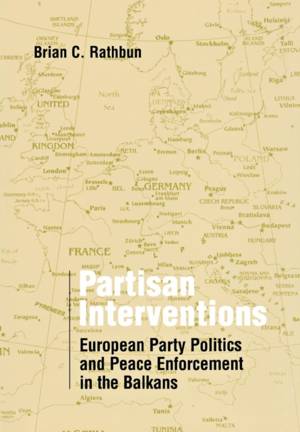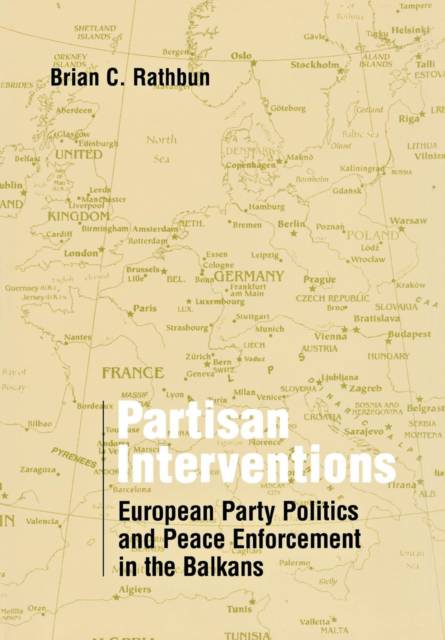
- Afhalen na 1 uur in een winkel met voorraad
- In januari gratis thuislevering in België
- Ruim aanbod met 7 miljoen producten
- Afhalen na 1 uur in een winkel met voorraad
- In januari gratis thuislevering in België
- Ruim aanbod met 7 miljoen producten
Partisan Interventions
European Party Politics and Peace Enforcement in the Balkans
Brian C RathbunOmschrijving
Ideological differences among political parties result in consistently different understandings of the national interest, Brian C. Rathbun shows. These differences between parties are critical as major international events unfold. In the first comprehensive treatment of the effects of partisan politics in foreign affairs, Rathbun examines domestic party disagreements across the 1990s in Britain, France, and Germany regarding humanitarian interventions and the creation of a European Union security force. The different reactions of the left and the right in the Western European nations had, for example, profound implications for the resolution of conflicts in Bosnia and Kosovo.
Rathbun argues that leftist parties, compared to their rightist counterparts, believe less in the efficacy of force, are more willing to rely on multilateral cooperation to realize their goals, and have a broader conception of the national interest that includes the promotion of human rights abroad. Cultural factors, such as a nation's unique history with the use of force, do not constrain partisan debate but rather make particular issues controversial and help parties resolve value conflicts. Partisan Interventions is based on interviews with dozens of senior party and government officials. Rathbun draws on the experiences of former foreign and defense ministers, heads of the armed services, ambassadors to the United Nations and NATO, and party spokespersons on foreign and defense policy.
Specificaties
Betrokkenen
- Auteur(s):
- Uitgeverij:
Inhoud
- Aantal bladzijden:
- 242
- Taal:
- Engels
Eigenschappen
- Productcode (EAN):
- 9780801442551
- Verschijningsdatum:
- 29/11/2004
- Uitvoering:
- Hardcover
- Formaat:
- Genaaid
- Afmetingen:
- 160 mm x 230 mm
- Gewicht:
- 471 g

Alleen bij Standaard Boekhandel
Beoordelingen
We publiceren alleen reviews die voldoen aan de voorwaarden voor reviews. Bekijk onze voorwaarden voor reviews.









